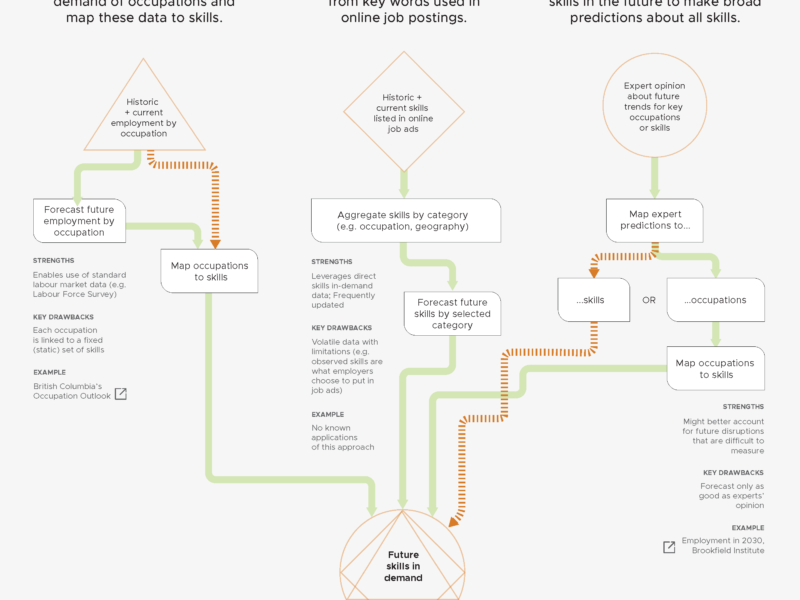Research + White Papers
Research
Job Polarization in Canada
Job polarization is one of several trends — including automation, offshoring and the growing gig-economy — that were already being examined when COVID hit. As Canadian policymakers start to consider how to build back the economy after the pandemic, it makes sense to consider and address the problems created by polarization.
Research
Skills for the Post-Pandemic World Series
The Future of Work continues to be a major area of focus for the Future Skills Centre and our partners at the Public Policy Forum and at the Diversity Institute.
Research
Work at home or live at work: The complexities of new working arrangements
This survey report explores both the positive and negative experiences with working from home, and how these vary among different types of employees.
Research
A Path Forward - Job Transitions in Canada
Most Canadians who want to make a career transition have viable and desirable options, especially if they possess, or are willing to learn, the skills, abilities, tools, and technologies required for their destination occupation.
Research
Canadian Labour Demand Update: Analysis of Job Postings for the Fourth Quarter of 2020
This report provides an update of labour demand trends from October to December 2020 with data sourced from the Vicinity Jobs Hiring Demand Analytics Suite.
Research
Is the Future Micro? Unbundling Learning for Flexibility & Access
Micro-credentials focus on assessing the achievement of incremental parcels of learning related to a particular skill or competency.
Research
Rising Skills: Digital Upskilling for Advanced Manufacturing Workplaces
Tradespeople need 21st-century digital skills to adapt to today’s more technologically advanced manufacturing sector. This summary looks at ways to strengthen training in Canadian manufacturing.
Research
Yesterday's Gone: Exploring the future of Canada's labour market in a post-covid world.
In this report, we explore a broad range of trends with the potential to impact Canada’s labour market over the coming decade—many of which have been accelerated, disrupted, or created by COVID-19










